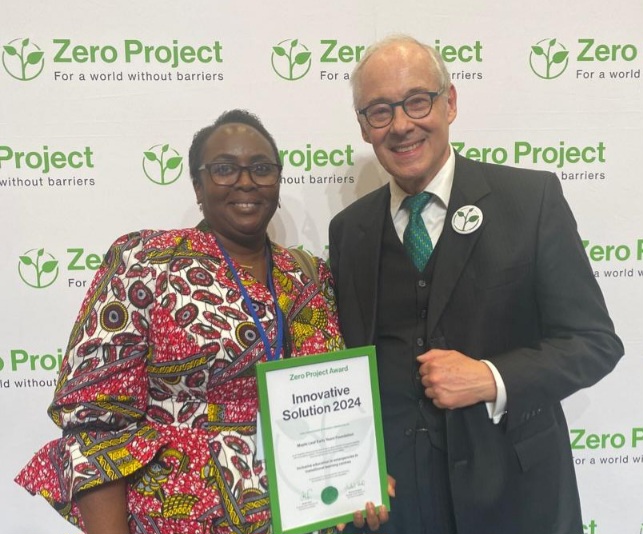As the United Nations Children’s Fund (UNICEF) continues to emphasise the imperatives of inclusive education, the Executive Director and Co-Founder of Maple Leaf Early Years Foundation, Ms. Ifedinma Nwigwe, has called for concerted global action on the deployment of the scheme in emergency management, especially for internally displaced persons and refugees.
Speaking recently at the international conference and awards tagged: Zero Project 2024, and organized by The Zero Project, in Vienna, Austria, Nwigwe said inclusive education can transform learning environments by ensuring that the pupils have a sense of freedom, safety and equality.
She emphasised the importance of making the learning environment conducive for all categories of pupils, irrespective of their social, physical, emotional and intellectual conditions, adding that such an environment makes them think less of their apparent peculiar conditions while ensuring they leverage other aspects of their strengths and energies.
Inclusive education, she said, is important because it provides an educational setting where students from different backgrounds and with different abilities learn together without keeping certain categories of learners in isolation because of their special needs.
“It is imperative that we accommodate all children regardless of their physical, intellectual, social, emotional, linguistic, or other conditions. This is important because educational interventions are already limited in displaced settings because of their peculiar circumstances, and as a result, an inclusive environment is vital.
“Inclusive education has proven to increase the level of empathy in the pupils and also deepen the sense of accommodation and tolerance that strengthen the human support systems; it builds up the bank of emotional intelligence in the children while also boosting their confidence and ability to compete irrespective of their peculiar conditions. I say this because due to the type of trauma and other difficult conditions that they have been exposed to, inclusivity in educational programmes is the only means of ensuring that every pupil feels a sense of accommodation,” Ms. Nwigwe stated.
She commended the management of the educational processes in many of Nigeria’s displaced persons environments and said the country has been proactive in incorporating inclusivity in the education of distressed citizens.
“In many of the interventions we have made with the National Commission for Refugees Migrants and IDPs, and the National Commission for People Living with Disabilities, inclusive education has been integral to every intervention we have made, and the results have been commendable. We are always intentional about ensuring that all children living with disabilities, for instance, are fully accommodated and provided with tools and motivations that facilitate learning in a plural environment without making them feel different,” she stated.
This, she said, has helped the healing process for both the displaced people and those living with disabilities because, according to her, the “psychosocial support from being around children whose abilities may differ from theirs makes a significant impact on their journey of self-reliance and healing.”
She revealed that through her interventions and the support provided by the Nigerian government and its agencies, his organization has been able to plant holistic and safe learning spaces for children, particularly those who feel different because of their disability, enabling them to integrate easily in their environment.
The NGO, she further revealed, provided school feeding in internally displaced persons camps through its Transitional Learning Center intervention as a means of enhancing the comfort and disposition of the beneficiaries to learning.
